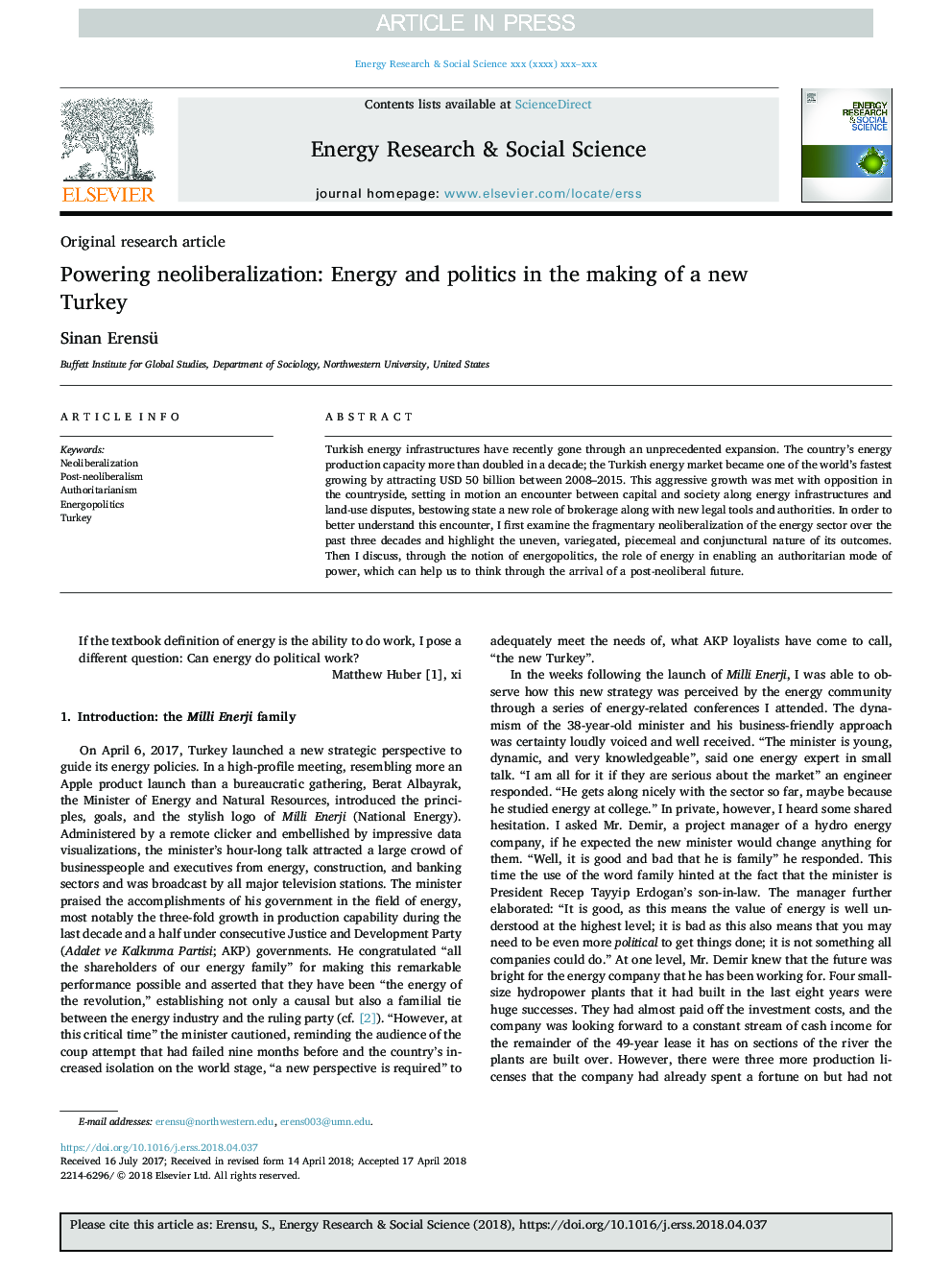| Article ID | Journal | Published Year | Pages | File Type |
|---|---|---|---|---|
| 6557419 | Energy Research & Social Science | 2018 | 10 Pages |
Abstract
Turkish energy infrastructures have recently gone through an unprecedented expansion. The country's energy production capacity more than doubled in a decade; the Turkish energy market became one of the world's fastest growing by attracting USD 50 billion between 2008-2015. This aggressive growth was met with opposition in the countryside, setting in motion an encounter between capital and society along energy infrastructures and land-use disputes, bestowing state a new role of brokerage along with new legal tools and authorities. In order to better understand this encounter, I first examine the fragmentary neoliberalization of the energy sector over the past three decades and highlight the uneven, variegated, piecemeal and conjunctural nature of its outcomes. Then I discuss, through the notion of energopolitics, the role of energy in enabling an authoritarian mode of power, which can help us to think through the arrival of a post-neoliberal future.
Related Topics
Physical Sciences and Engineering
Energy
Energy (General)
Authors
Sinan Erensü,
